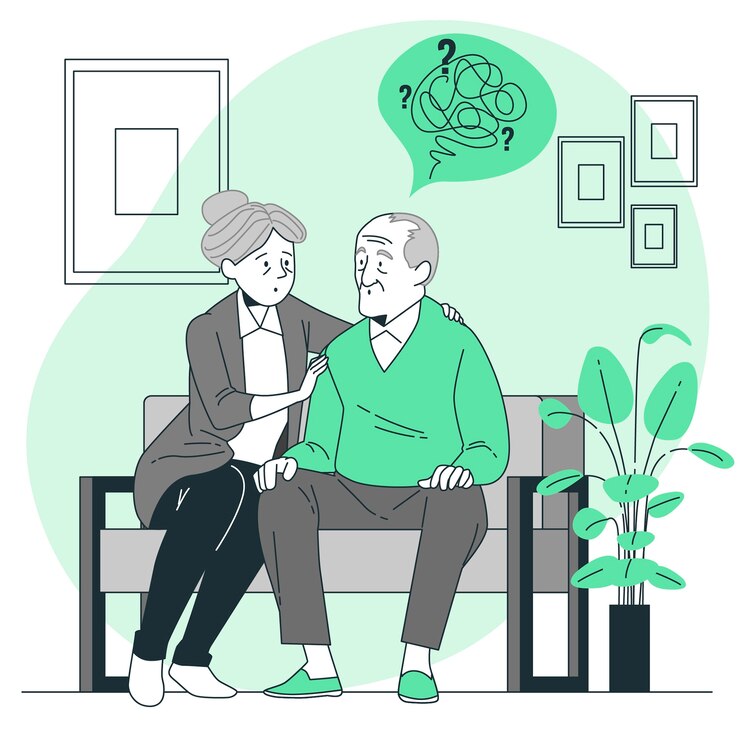
Alzheimer’s Disease Stages: Progression and Symptoms at Each Stage
Introduction: Understanding the stages of Alzheimer’s disease can help individuals and their families anticipate changes, plan for care, and make informed decisions. Let’s break down the progression of Alzheimer’s and the symptoms associated with each stage in simple terms.
Stages of Alzheimer’s Disease:
- Early Stage (Mild Alzheimer’s):
- Memory Loss: Forgetfulness becomes noticeable, especially of recent events or conversations.
- Difficulty with Tasks: Individuals may struggle with tasks that require organization, planning, or problem-solving.
- Mood Changes: Mood swings, irritability, and anxiety may occur.
- Middle Stage (Moderate Alzheimer’s):
- Increased Memory Loss: Memory loss worsens, affecting significant events, personal history, and familiar faces.
- Communication Challenges: Difficulty finding the right words, following conversations, or expressing thoughts.
- Behavioral Changes: Agitation, restlessness, wandering, and repetitive behaviors may occur.
- Personal Care Needs: Assistance with daily tasks such as bathing, dressing, and grooming becomes necessary.
- Late Stage (Severe Alzheimer’s):
- Severe Memory Loss: Individuals may no longer recognize close family members or recall personal history.
- Physical Decline: Motor skills decline, leading to difficulty walking, swallowing, and controlling bladder or bowel movements.
- Loss of Speech: Communication becomes minimal or nonexistent.
- Vulnerability to Infections: Increased susceptibility to infections due to weakened immune system and inability to care for oneself.
Conclusion: Alzheimer’s disease progresses through distinct stages, each presenting its own challenges for individuals and their caregivers. By understanding the symptoms associated with each stage, families can better prepare for the changes ahead and provide appropriate care and support for their loved ones.
Alzheimer’s disease is progressive, meaning it worsens over time. Understanding the stages can help in providing appropriate care and support. Here’s a simple breakdown:
Stage 1: Preclinical Alzheimer’s In this stage, there are no noticeable symptoms. Brain changes may be occurring, but they don’t yet affect memory or cognitive function.
Stage 2: Mild Cognitive Impairment (MCI) Some mild changes may be noticed, such as forgetfulness, difficulty finding words, or trouble with tasks that require planning or organization. However, these changes are often subtle and may not interfere significantly with daily life.
Stage 3: Mild Alzheimer’s Disease Memory lapses become more noticeable, and individuals may have difficulty with tasks like remembering names or appointments. They may also become more withdrawn from social activities and have trouble managing finances.
Stage 4: Moderate Alzheimer’s Disease Symptoms become more pronounced, and individuals may have difficulty recognizing familiar people or places. They may need help with basic activities of daily living, such as bathing, dressing, and eating.
Stage 5: Severe Alzheimer’s Disease In the final stage, individuals lose the ability to communicate effectively and may require full-time care. They may lose the ability to walk, sit, or even swallow. At this stage, round-the-clock care is often needed.
Conclusion: Alzheimer’s disease progresses through distinct stages, each with its own set of symptoms and challenges. Understanding these stages can help in providing appropriate care and support for individuals and their families.
To seek medical advice, always consult a Doctor. Here are our recommended experts. Click here
To read more on Neurological Disorders. Click Here


